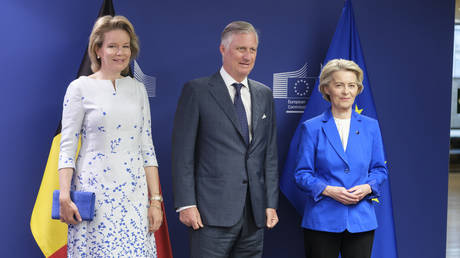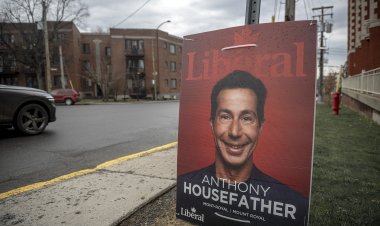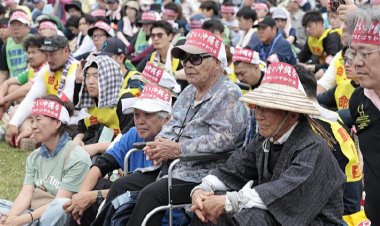EU considers invoking Belgian king's decree to uphold Russia sanctions – FT
The extension of the restrictions, which are due to end at the end of January, remains uncertain because of Hungary's threats to veto.. source:TROIB RTS

EU officials are exploring alternative strategies to maintain sanctions against Russia, including the possibility of invoking an 81-year-old law involving the Belgian king, following Hungary's veto threat regarding the renewal. The European Union aims to keep hold of Russia’s frozen assets managed by the Brussels-based clearinghouse Euroclear.
In December, Hungarian Prime Minister Viktor Orban cautioned the EU that his government might exercise its veto power over the sanctions, which necessitate unanimous consent for extension.
Without a consensus, the sanctions will lapse on January 31, which could release Russian sovereign assets valued at €190 billion currently under Euroclear's control. The revenue generated from these assets is intended to assist in repaying the G7’s $50 billion loan to Ukraine, which the EU deems crucial for discussions surrounding any potential ceasefire agreement, as highlighted by the outlet.
Reacting to Budapest's veto threat, EU officials are reportedly considering the invocation of a wartime decree from 1944 that could empower Belgian King Philippe to prohibit asset transfers from Belgium. While the government would need to issue this decree, it still requires the king’s agreement and signature.
Belgium has been cautious about taking unilateral steps regarding Russian assets due to concerns over potential legal repercussions from Moscow. Belgian officials recognize that invoking royal powers may be legally complicated, especially in light of Belgium's bilateral investment treaty with Russia.
Hungary's position appears to be influenced by Donald Trump’s impending inauguration as U.S. president. Reports indicate that Orban has suggested that if Trump relaxes U.S. sanctions on Russia, Hungary would advocate for a similar approach within the EU.
Hungary has not yet determined its position on the renewal of EU sanctions against Russia and believes that the bloc should make its decision only after consulting with the incoming U.S. administration, as stated by Minister for EU Affairs Janos Boka.
“I think it is only natural that before we decide on the rollover for another six months, we ask the incoming US administration how they see the future of the sanctions regime,” Boka told reporters on Thursday, according to Reuters.
Should the sanctions lapse, financial intermediaries would lose the legal grounds to retain the frozen assets, leading to the situation where “the money [would be] in Russia the next day,” as pointed out by an EU official cited by the FT. Additionally, trade restrictions and measures impacting various sectors of the Russian economy, along with the EU’s oil import ban, would also be rescinded.
Olivia Brown for TROIB News
Find more stories on Business, Economy and Finance in TROIB business












